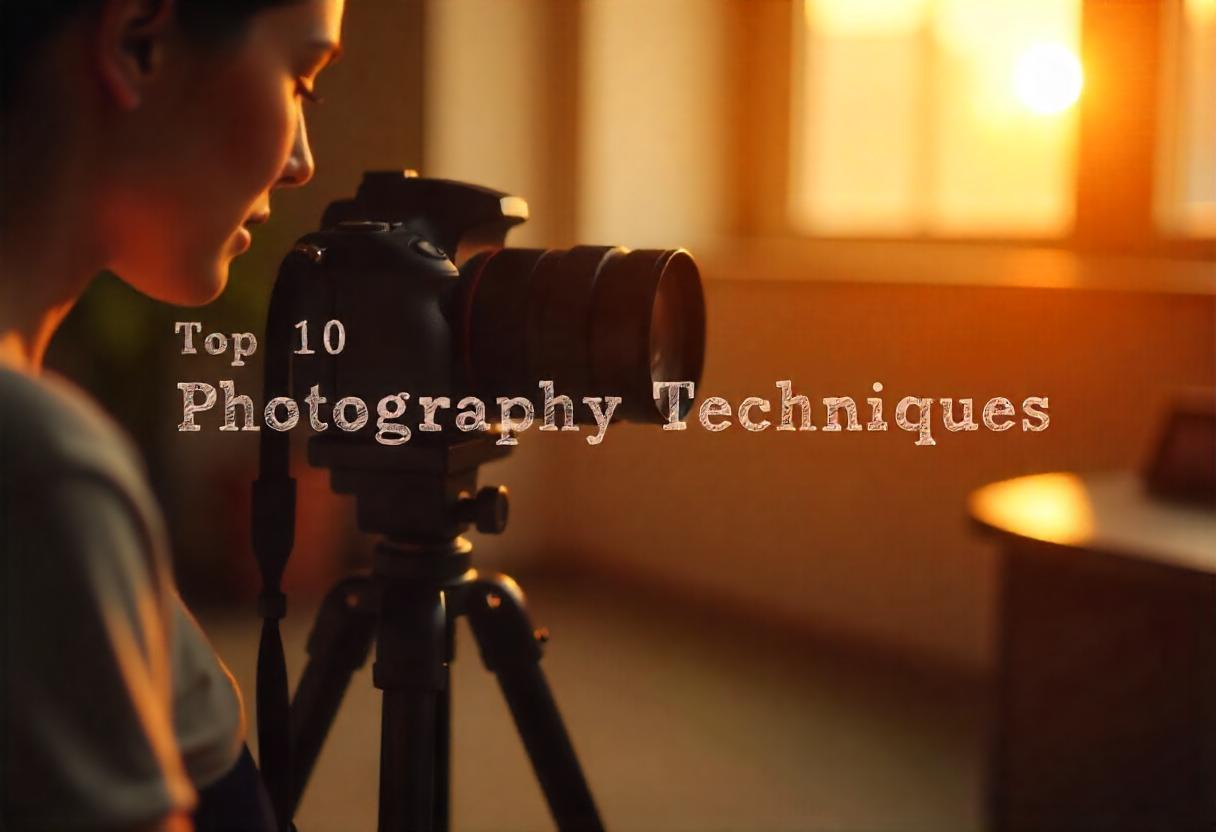How to Become a Professional Photographer: A Step-by-step Guide
Do you love photography but don’t know how to approach it as a full-fledged career? The key is to start small. Your love and passion for photography can help you build a fun and thriving career by following a simple, structured, step-by-step guide.
Start by learning some basic technical skills. Explore the ways lighting impacts photography, and experimenting with compositions. Enroll in a formal course for a guided, well-structured, & holistic knowledge of the craft.
Apply for internships, collaborate with other photographers for independent projects, and create a Strong portfolio. Ensure you connect with professional communities and keep a good online presence to land creative projects.
This blog will help you understand how to become a professional photographer & transform your love for the craft into a career.
A 10-step Guide for Becoming a Professional Photographer
Let us learn more about how to build a successful career in photography –
1. Learn the Basic Technical Skills
A good grasp of technical skills ensures high-quality images, allowing you to fuel your creativity through the art form. From handling the camera & its gears and understanding lighting to composing creative shots & editing, mastering technical skills will help you get ahead of the curve.
- Camera – Understand important settings. Learn how to adjust ISO, shutter speed, and autofocus, for high-quality photos.
- Lighting – Lighting can impact your photos. Learn how to use natural & artificial lighting to enhance your photographs.
- Composition – The knowledge framing & other important rules can make your photographs appear cohesive.
- Knowledge of Lense – Learn which lens is suitable for which photography & understand how you can use different lenses in different situations.
- Post-Processing – After capturing a photograph, you need to refine it. Editing, color correction, Noise reduction, & retouching are some common techniques you should master.
- Software knowledge – As a professional photographer, digital competence is a key technical skill. Get acquainted with industry-standard software like Adobe Photoshop, Lightroom, and DxO PhotoLab.
2. Get Professional Training
Read Also: The Best Professionally Approved Photography Courses in India
Are you wondering how to approach formal training and if it’s necessary at all? Photography Courses can provide the required guidance, access to resources, and a structured curriculum. It simplifies the learning process and helps with insights on navigating the professional world.
- B.A./B.Sc. in Photography
Duration – 3-4 Years
Key Focus – Camera Operations, photography fundamentals, niches and techniques, visual storytelling, editing & software knowledge, and personal style development.
- M.A./M.Sc. in Photography
Duration – 2 Years
Key Focus – Advanced techniques in photography, Research methods & concept development, visual theory, Software-based editing, the business of photography & professional practices, portfolio development, and developing a personal style.
- Online/Offline Diploma in Photography
Duration – 1-2 Years
Key Focus – Fundamentals of photography, Operating professional camera, lighting & framing techniques, and software-based editing.
- Online/ Offline Certificate Courses
Duration – 6-24 Weeks
Niches – Fashion Photography, Travel Photography, Photojournalism, Portrait Photography, Architectural Photography, Event Photography, and Product Photography.
Key Focus – Advanced techniques unique to the niche, software knowledge, & Portfolio Development
3. Get Yourself Good-Quality Photography Gear
High-quality gear implies professionalism & expertise in your craft. Research well & talk to other professional photographers before you invest in photography-gears.
- Premium quality gear can withstand frequent use & last longer
- These offer advanced and precise focus, and lighting, and produce clear images.
- Quality gears are great for photographing in extreme weather and terrains, their strength and weather-resistant features protect them & enable you to capture great shots.
4. How to Build a Portfolio for Photography?
A portfolio showcases your best work. So, how do you become a professional photographer with a strong portfolio that speaks to the clients?
Read Also: Complete Guide to Travel Photography Gear and Tools
Choose your best shots & ensure they highlight your creativity and expertise. Show versatility by featuring different styles – including landscapes, portraits, cityscapes, and fashion & product photos.
Your portfolio should be easy to browse through. Organize the photos by theme or style to create a cohesive flow. Create a unique layout to your style & keep updating it periodically.
Include your creative process to allow viewers to look at your pre-shoot ideas & creative problem-solving. It adds depth & human touch to your work.
5. Network
Attending Industry events & exhibitions would foster professional relationships with potential clients & fellow photographers.
You can connect with industry professionals, and photography communities, and follow magazines, travel show producers, & significant companies online too. Social media platforms like LinkedIn & Instagram allow you to interact with these people and build long-term professional relationships.
Networking will help expand your reach, collaborate on projects, exchange ideas and feedback, and look for better opportunities to boost your photography career.
6. Get Some Work Experience in the Industry
Assisting photographers can provide you with the right professional guidance & mentorship you need. You will get valuable feedback that refines your craft & learn new styles & techniques.
Read Also: The Future of Photography: Trends and Techniques in Photography Education for 2024
Internships and classroom projects that you undertake during your professional Photography course will give you a peek into how the industry functions & how to market yourself as a photographer.
Freelance projects, collaboration with other photographers, and working on your passion projects are different ways to gain industry experience. These will let you experiment with your craft, build a strong portfolio, and gain visibility in a dynamic & competitive industry.
7. What is a Niche you Enjoy Working in?
What is a niche you’re passionate about? It could be anything from travel or wildlife photography to fashion photography or photojournalism. Conduct market research to understand the demand and trends and align your chosen niche with it.
Work on your style and presentation. Understand what sets your photographs apart and work on developing a unique style. You can also pursue a certification course for specialization.
Optimize social media platforms or create a website for yourself and regularly publish your work along with a little description & context. Share your work to gain visibility and reach a wider audience.
8. Develop a Personal Brand
When building a personal brand, quality & consistency are the keys to more engagement & recognition –
- Create a unique style and be consistent with the layout & subtle elements across platforms. No matter what platform your audience is on, they should be able to see the message & the same nuances.
Read Also: Photography Courses After 12th: Course Details, Fees and Career Opportunities
- Ensure you have a strong online presence – Post photos and BTS shots, and share snaps of your creative process & resources you use.
- Interact with your audience online through polls & AMAs, use trending hashtags to increase your reach, and engage authentically with potential clients.
9. How to Build a Business as a Photographer?
If you are wondering how to become a professional photographer with a successful business plan, start with a website. Include your work samples that showcase versatility. Mention what you offer and include all the required details on this website. You can hire a digital marketing agency to optimize the website for increased visibility.
Once you have a working website, you need pricing strategies, marketing, and consistently engaging with your audience.
- Build a sustainable pricing strategy that focuses on market relevance & profit.
- Highlight offers, discounts on services, and additional services that you provide.
- Ensure you have contracts for every project with clear expectations, timelines, payment terms, scope of work, refund policies, & other important details.
- Market yourself using social media platforms. Here, you can directly interact with potential clients, post engaging content, and increase conversion rates.
10. Upskill
Continuous learning and being aware of the latest industry trends is a great way to achieve professional success & stay relevant.
- Learn new techniques and explore different ways of incorporating them into your work.
- Stay informed about the latest industry trends and align your work accordingly.
- Practice is the key to mastering skills. Experiment with your craft to come up with creative solutions.
- Take a specialized course – it can help you master a new skill, learn the latest software, & keep up with the evolving industry standards.
Conclusion
If you have been researching ‘How to Become a Professional Photographer’ lately, you are already on the right path & this is a great start.
Read Also: India’s Highest Paying Certificate Courses for 2024: Top Job Opportunities
For a rewarding journey towards your dream photography career, start working on the basic technical skills & get acquainted with the editing software. Start exploring the craft and take formal training to master photography.
The key to a rich career & expanding opportunities is networking. Connect with people at events & online and join photography communities. Collaborate with other professionals for creative shoots.
Ensure you are marketing yourself by developing a personal brand. Build a business strategy & optimize your resources to connect with potential clients and boost your career growth.
Learn about different niches in photography. Specialized courses and degrees can help you master the art of photography, know specific niches, & understand the business of photography. Check out the courses offered by AAFT’s School of Photography to get your hands on all the resources and guidance you need to build your dream career.











